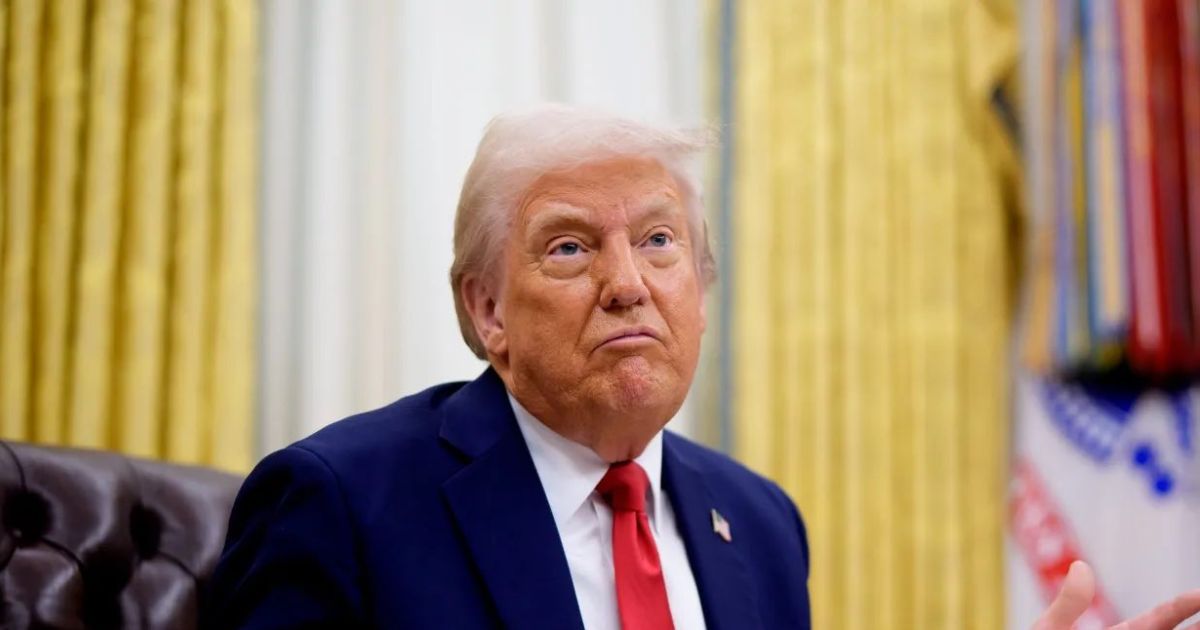After Liz Truss’s 2022 mini-budget crisis forced a dramatic political U-turn in the UK, Britain was left with a costly legacy; higher borrowing costs dubbed the “moron premium.” Now, economists suggest the United States may be on the verge of a similar fate under President Donald Trump’s turbulent economic leadership.
The United States of America has long been stated as the cornerstone of global financial stability; however, present scenarios suggest the country’s erraticness. A few days before only, there were concerns over Donald Trump’s global tariff war which sent the investors fleeing from the debts of the country, and eventually triggered bond sell-offs along with uplifting the yields.
However things were a little bit positive concerning Trump’s climbdown and there was a brief reprieve with experts like Orla Garvey from Federated Hermes stating that “the premium on US treasuries remains high.” Murmurs of economic mismanagement seems to appear here as these reflects on the higher returns, investors are now demanding to lend the country.
Neil Shearing of Capital Economics added, “It was almost certainly moves in the bond market, rather than equity markets, that forced the change in stance by the US. It is the bond market that sets borrowing costs for the government.”
Situations might take the worse path, as there are very little chances of the investors forgetting about the unpredictable moves, that Trump is habituated to take. Even with Wednesday’s pause, the damage is done, and countries like the US as well as China have locked horns in a trade war.
“We called it a ‘moron premium’ because the policy-making was pretty moronic.”
Is Trump having his Liz Truss moment? 🥬@maitlis | @jonsopel | @lewis_goodall pic.twitter.com/sGn73rjrO5
— The News Agents (@TheNewsAgents) April 9, 2025
States say that the United States has slapped a whopping 145% tariffs on the Chinese goods, though China has responded too, with 125% on U.S. imports. There are high chances that these rising tensions might choke off the critical resources of the country’s funding. China is a key buyer of the treasuries of the US department, and Mohit Kuar of the Jefferies even warned, “If trade deficits reduce, it is not obvious that the rest of the world will continue to fund US fiscal deficits.”
He further added – “The US will be seen as an unreliable partner, leading to countries trying to reduce trade ties with the US and increase trade ties with each other.” Besides he also suggested that the investors should pivot to the other continents like Asia and Europe
At present, there has been a $36 trillion debt, on America, and putting a higher interest rate on this scenario will be catastrophic. And the effects don’t stop at government borrowing. “It could cause a recession in the US,” said Bilal Hafeez of Macro Hive. “It also means longer-term growth will fall as well.”
The mortgage rates of the country are closely tied with the long-term government bonds, and these are expected to climb over the years. And in that situation, higher borrowing costs that too, on a global perspective could further push up these rates even in other debt-free countries as well.
“Trump repeats complete falsehoods, which permeate people’s confidence and trust in everything which comes out of that administration, which leads then to the bond market,” said Stephen Thomas of Bayes Business School. Whether it’s called a “moron premium” or a “falsehood premium,” the market’s growing mistrust may cost America for years to come.









